Radia Daud
We are called to Listen
Marcella Niehoff School of Nursing
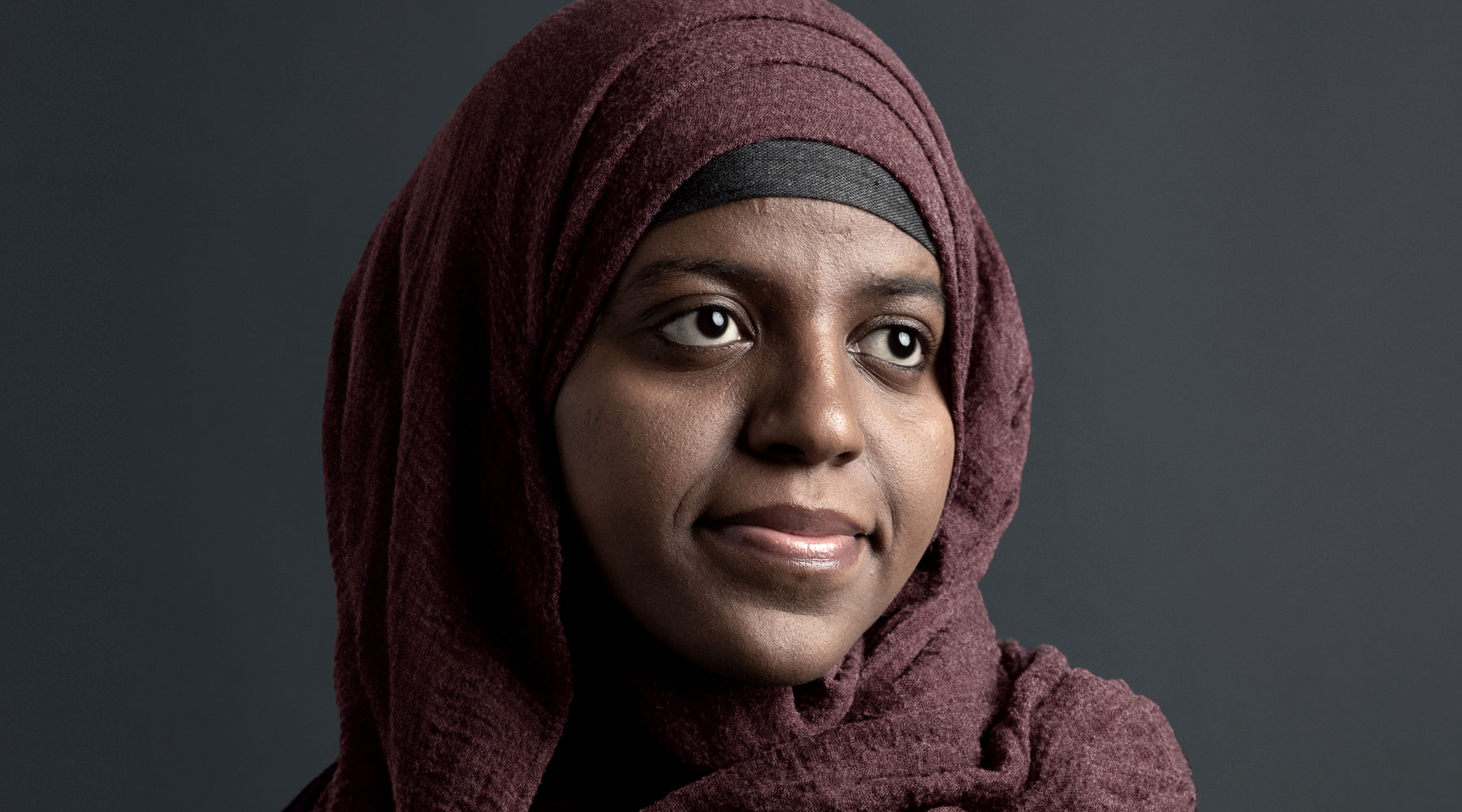
Radia Daud Nursing
Called to Listen
A nursing major's personal experience led her to address the health care needs of fellow refugees
Supporting Refugee populations
Eritrea abuts the Red Sea in East Africa. It's a long way from the American Midwest, physically and culturally. Radia Daud would know—it's where she and her family, a group of Eritrean refugees, eventually resettled. As a student in the Marcella Niehoff School of Nursing at Loyola University Chicago, Daud wanted to unpack and understand the experiences of Eritreans interacting with the American health care system, researching what works well and what might not. For this "under-researched population," the differences are crucial and the stakes sky-high.
We asked Daud, who graduated from Loyola in 2020, to share some of her research discoveries and the impact her work will have.
Where did the idea for this research come from?
I haven't always been interested in research; it wasn’t something I had really considered until I applied to the Gannon Scholars program at Loyola as a high school senior. Part of the application process was to think about contemporary issues going on in our community, and how research could be used as a tool to address those issues.
As a nursing student, my research focused on exploring the health care experiences of Eritrean refugees living in the Midwestern United States. This idea came to me because of my personal experiences as an Eritrean refugee, and my family’s challenges in accessing needed health care services and receiving quality care. I hoped my research would reveal some patterns in the challenges faced by this population, suggesting areas for improvement that might facilitate this population’s health care access and outcomes. We are members of a very under-researched population, but one that has been growing in the United States as more people leave Eritrea.
Describe your research and what you’ve learned so far. What kind of impact do you think this research will have?
My project is focused on understanding how Eritrean refugees feel about their health care experiences living in the U.S., and learning about their needs and barriers. To gather my data, I am conducting interviews with Eritrean refugees living in Illinois and Michigan. Utilizing the data collected from the interviews, I am hoping to learn something about how this population could be better served in the future, if necessary.
I haven’t finished analyzing my data yet, thus I can’t share outcomes. It is interesting to note that many of my participants are surprised by my research—they don’t fully understand what academic research is, or how it is used. They are very willing to participate, but mainly see it as a way of helping me, not as a potential way of helping the community. For some, this is the first time research has been explained to them.
I want to understand Eritrean refugee patients’ perspectives on the type of care they are receiving here in the U.S., to learn about what works for them and what doesn’t, and to know what their habits are when it comes to health care. My hope is that this information will help providers address barriers they are facing and determine how those barriers can be reduced.
While some concerns, such as language barriers, are present for all immigrant populations, research has shown that there is also considerable variation in attitudes towards and experiences with U.S. health care among different immigrant populations. For this reason, it is important to study populations separately, as well as looking for common, shared immigrant experiences. Personally, I feel that this project will allow my people’s voices to be heard as a distinct population with unique backgrounds, challenges, and strengths.
What kind of topics and fields in nursing need more research?
As health care providers, it is important to do research so we can continuously improve patient care for everyone. I think a lot of minority needs are under-researched, both in nursing and other health care fields. As the U.S. becomes more diverse, it is very important that we know the needs of our patients. There needs to be more research done on refugees and those who have low English proficiency.
In particular, however, populations speaking uncommon languages face even greater challenges to accessing health care, even in a large, multicultural city like Chicago where many hospitals and doctors’ offices offer multilingual services. Solutions for speakers of rarely-spoken languages are going to be harder to develop, but are necessary for providing equitable care and ensuring that these populations do not suffer poor health outcomes.
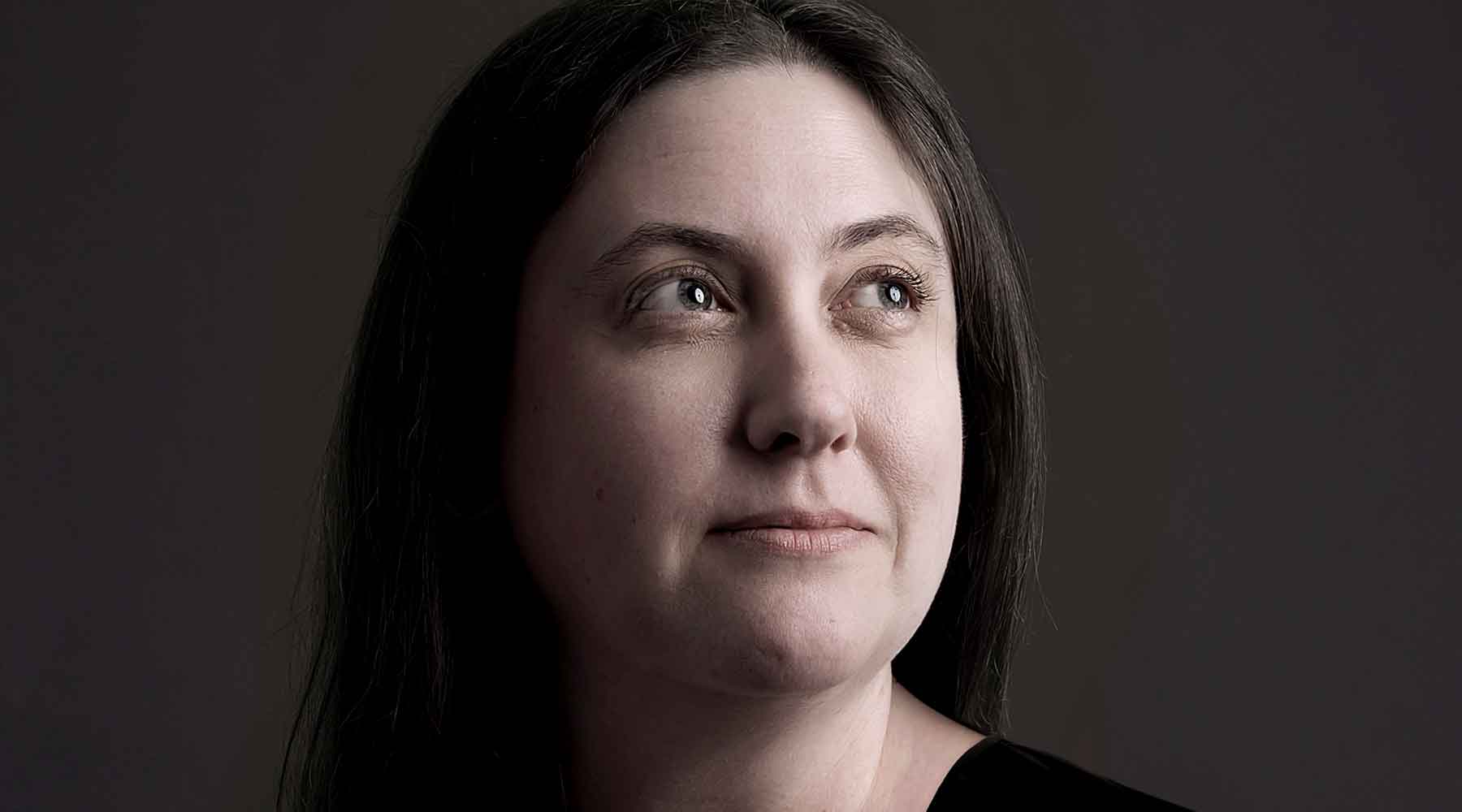
Bioinformatics
Catherine Putonti, PhD
Director, Bioinformatics Program
A mentor is making room for more diverse voices
Read Catherine's Story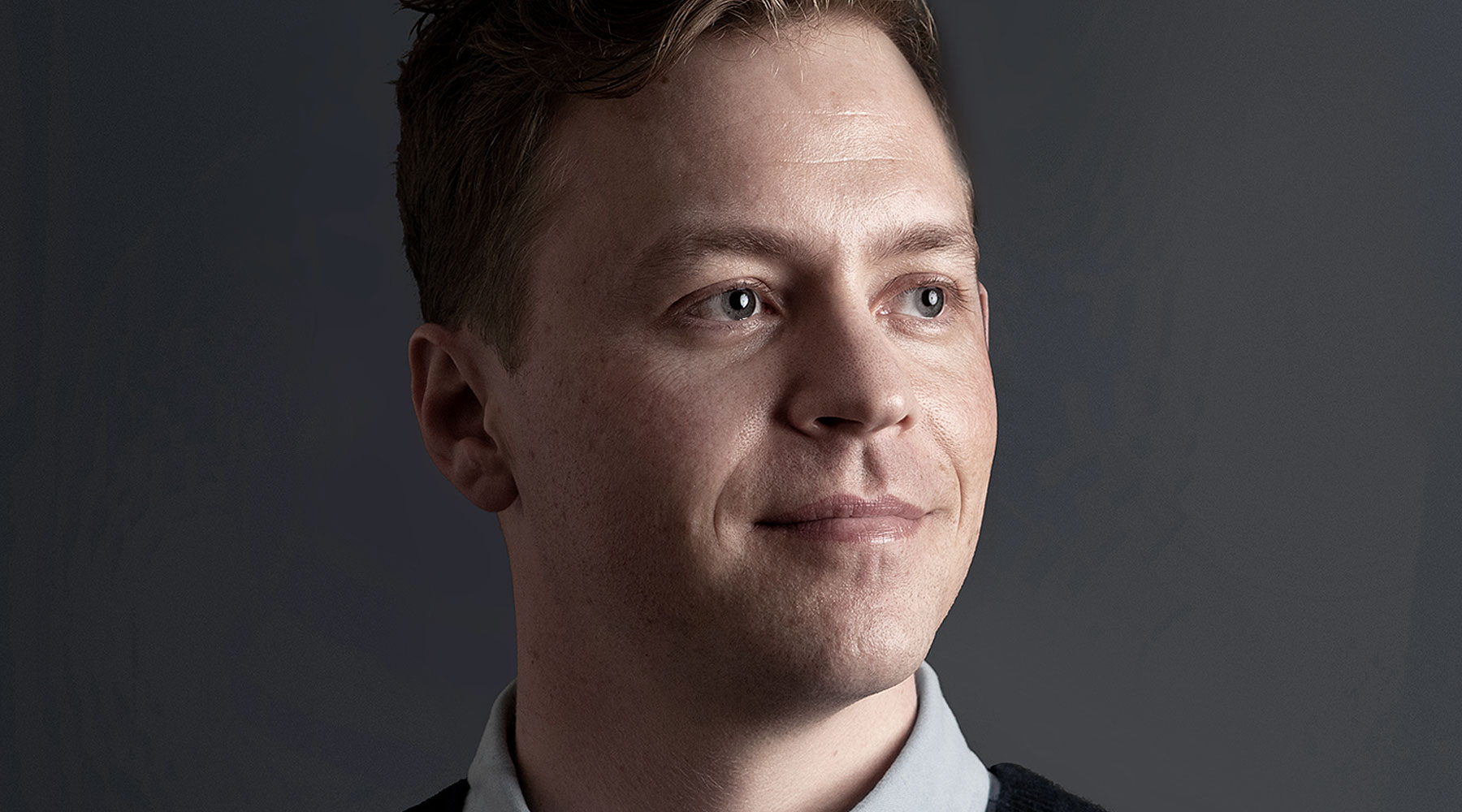
Parkinson School of Health Sciences and Public Health/Stritch School of Medicine
Travis Nielsen, MD/MPH
Public Health and Medicine
A student’s personal loss fuels his mission to improve the system
Read Travis' Story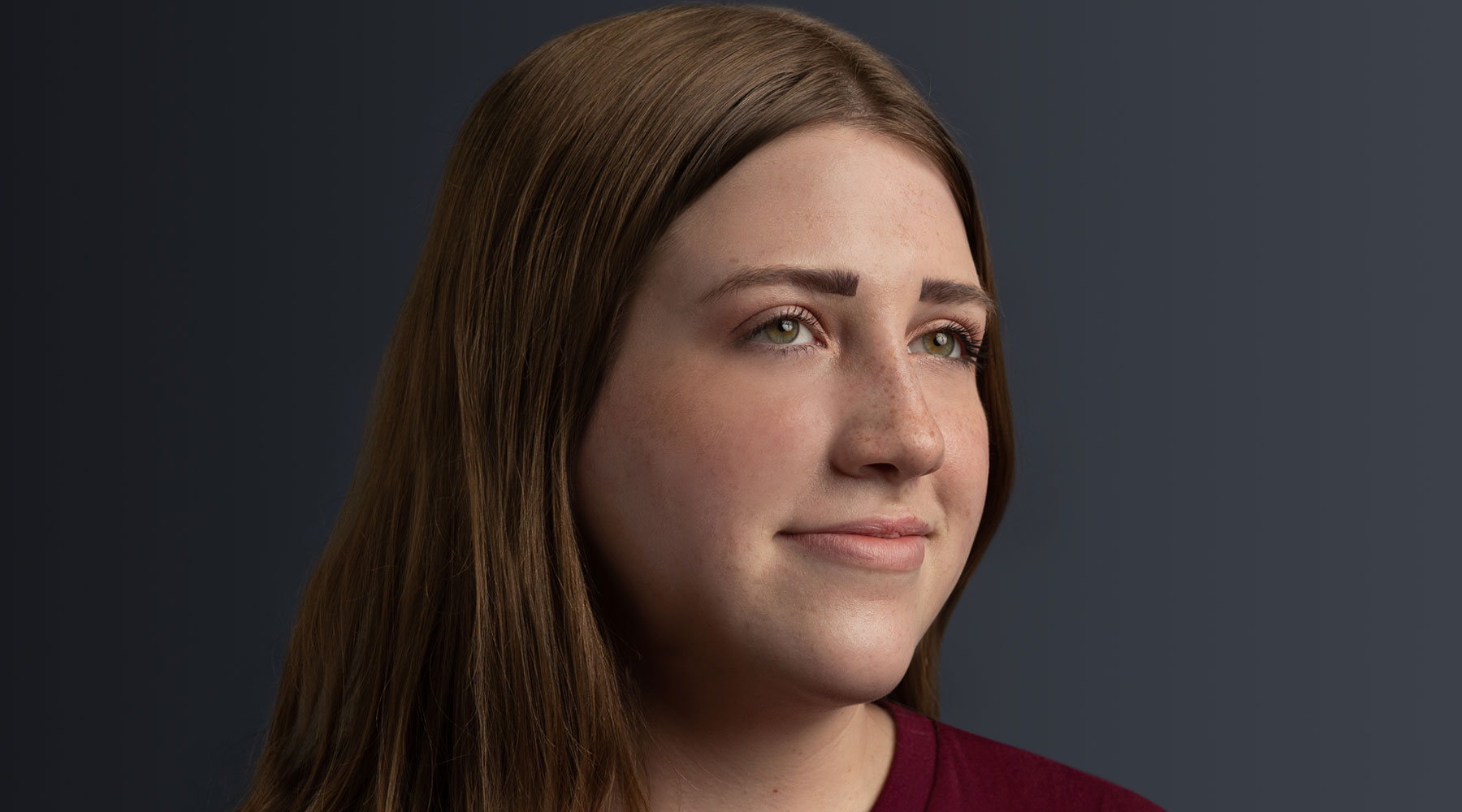
Parkinson School of Health Sciences and Public Health
Sydney Ross
Public health major with minors in biology and biostatistics
Applying in-class lessons to real-world scenarios during a global pandemic
Read Sydney's story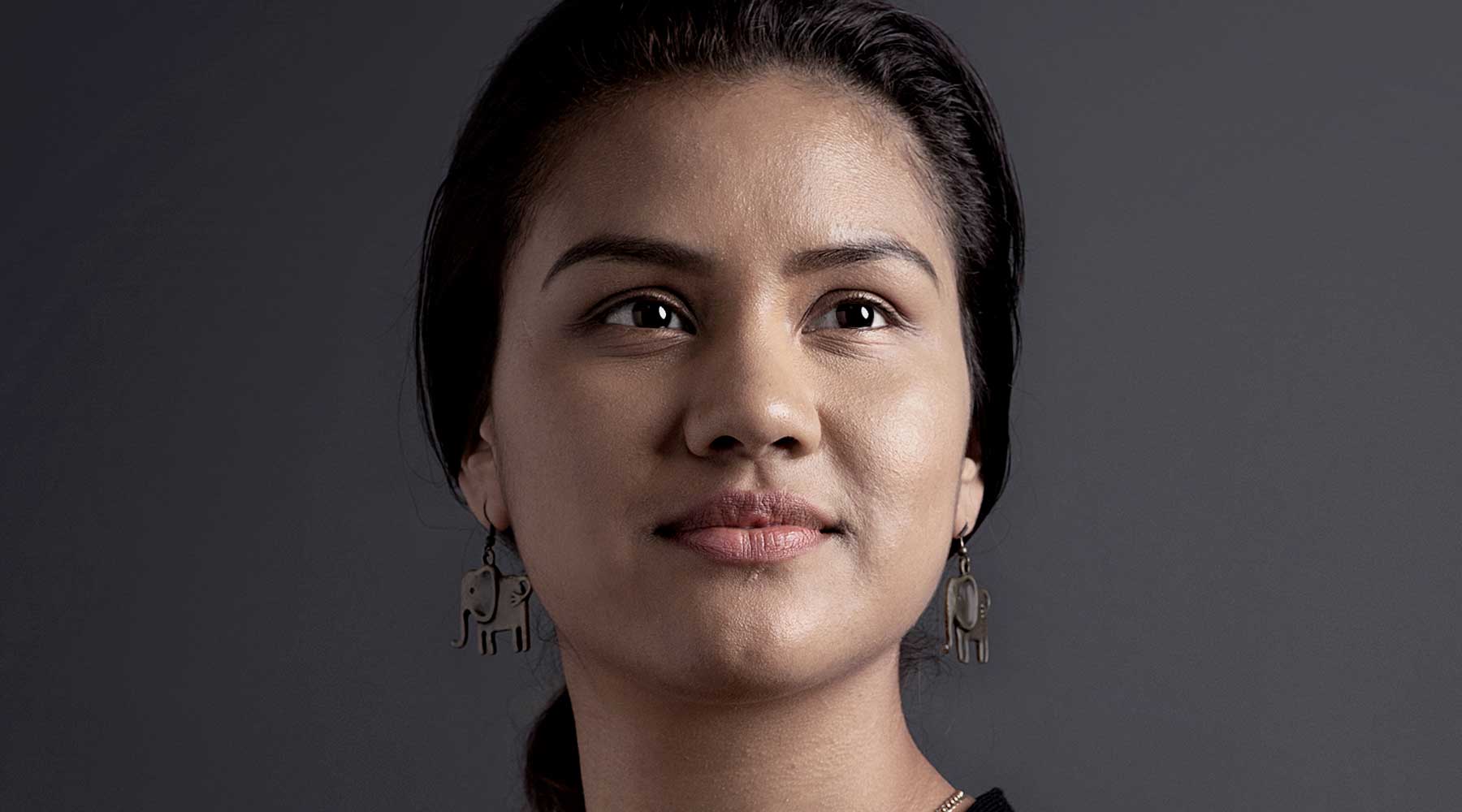
Arrupe College
Lady Carrillo
Business Administration and Management
A first-generation college student capitalizes on resources and opportunity
Read Lady's StoryRadia Daud Nursing
Called to Listen
A nursing major's personal experience led her to address the health care needs of fellow refugees
Supporting Refugee populations
Eritrea abuts the Red Sea in East Africa. It's a long way from the American Midwest, physically and culturally. Radia Daud would know—it's where she and her family, a group of Eritrean refugees, eventually resettled. As a student in the Marcella Niehoff School of Nursing at Loyola University Chicago, Daud wanted to unpack and understand the experiences of Eritreans interacting with the American health care system, researching what works well and what might not. For this "under-researched population," the differences are crucial and the stakes sky-high.
We asked Daud, who graduated from Loyola in 2020, to share some of her research discoveries and the impact her work will have.
Where did the idea for this research come from?
I haven't always been interested in research; it wasn’t something I had really considered until I applied to the Gannon Scholars program at Loyola as a high school senior. Part of the application process was to think about contemporary issues going on in our community, and how research could be used as a tool to address those issues.
As a nursing student, my research focused on exploring the health care experiences of Eritrean refugees living in the Midwestern United States. This idea came to me because of my personal experiences as an Eritrean refugee, and my family’s challenges in accessing needed health care services and receiving quality care. I hoped my research would reveal some patterns in the challenges faced by this population, suggesting areas for improvement that might facilitate this population’s health care access and outcomes. We are members of a very under-researched population, but one that has been growing in the United States as more people leave Eritrea.
Describe your research and what you’ve learned so far. What kind of impact do you think this research will have?
My project is focused on understanding how Eritrean refugees feel about their health care experiences living in the U.S., and learning about their needs and barriers. To gather my data, I am conducting interviews with Eritrean refugees living in Illinois and Michigan. Utilizing the data collected from the interviews, I am hoping to learn something about how this population could be better served in the future, if necessary.
I haven’t finished analyzing my data yet, thus I can’t share outcomes. It is interesting to note that many of my participants are surprised by my research—they don’t fully understand what academic research is, or how it is used. They are very willing to participate, but mainly see it as a way of helping me, not as a potential way of helping the community. For some, this is the first time research has been explained to them.
I want to understand Eritrean refugee patients’ perspectives on the type of care they are receiving here in the U.S., to learn about what works for them and what doesn’t, and to know what their habits are when it comes to health care. My hope is that this information will help providers address barriers they are facing and determine how those barriers can be reduced.
While some concerns, such as language barriers, are present for all immigrant populations, research has shown that there is also considerable variation in attitudes towards and experiences with U.S. health care among different immigrant populations. For this reason, it is important to study populations separately, as well as looking for common, shared immigrant experiences. Personally, I feel that this project will allow my people’s voices to be heard as a distinct population with unique backgrounds, challenges, and strengths.
What kind of topics and fields in nursing need more research?
As health care providers, it is important to do research so we can continuously improve patient care for everyone. I think a lot of minority needs are under-researched, both in nursing and other health care fields. As the U.S. becomes more diverse, it is very important that we know the needs of our patients. There needs to be more research done on refugees and those who have low English proficiency.
In particular, however, populations speaking uncommon languages face even greater challenges to accessing health care, even in a large, multicultural city like Chicago where many hospitals and doctors’ offices offer multilingual services. Solutions for speakers of rarely-spoken languages are going to be harder to develop, but are necessary for providing equitable care and ensuring that these populations do not suffer poor health outcomes.
